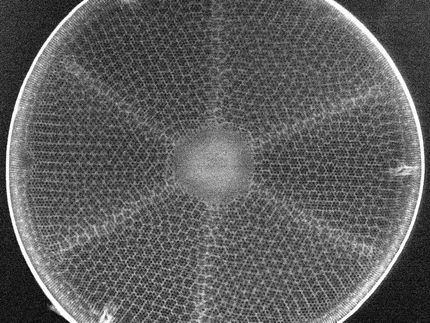Optics made to measure
Joint spin-off of LMU Munich and MPG established
If you are in the business of developing high-speed electronic components, it pays not to lose sight of the electrons. To keep track of them you will need to use dedicated optical elements, such as those now on offer from UltraFast Innovations GmbH. The new company, which has just been founded by researchers at Ludwig-Maximilians-Universität (LMU) in Munich and the Max Planck Society (MPG), manufactures specialized mirrors and other optical elements for use with pulsed laser light and x-rays. These components allow to generate and manipulate ultrashort light pulses. Pulses of extremely short duration, in turn, make it possible to observe the movement of the electrons in atoms and molecules in real time. Mirrors suitable for this purpose have only been commercially available to a limited extent until now. They will be of interest to companies that manufacture laser systems for industrial applications, as well as to research groups in the area of quantum and x-ray optics. LMU Munich and the MPG each have a 50% stake in the new joint-venture.
The research teams led by Ferenc Krausz, director at the Max-Planck-Institute of Quantum Optics and professor at LMU, and Ulf Kleineberg, who is also a professor at LMU include leading experts in the field of specialized optics.
Chirped mirrors allow one, for example, to compensate for the phenomenon of material-dependent dispersion, which occurs if the reflective surface delays light of different colors to different degrees – an effect that can increase pulse duration. Indeed, it was the ability of the chirped mirror to diminish this effect that first enabled the generation of ultrashort light pulses. With the aid of such mirrors, researchers were able, in 2008, to produce flashes that lasted for only 80 attoseconds, in this way breaking the 100-attosecond barrier for the first time, and creating the shortest light pulses ever generated in the laboratory. In 80 attoseconds light travels a distance of less than one thousandth of a millimeter.
"Such light pulses give us the opportunity to observe the movements of electrons in atoms and molecules in real time", explains Dr. Jens Rauschenberger, a member of Ferenc Krausz's research group and managing director of the new company. "It is like using a camera. To capture a sharp image of a fast-moving object, you need very short exposure times."
Organizations
Other news from the department business & finance

Get the analytics and lab tech industry in your inbox
By submitting this form you agree that LUMITOS AG will send you the newsletter(s) selected above by email. Your data will not be passed on to third parties. Your data will be stored and processed in accordance with our data protection regulations. LUMITOS may contact you by email for the purpose of advertising or market and opinion surveys. You can revoke your consent at any time without giving reasons to LUMITOS AG, Ernst-Augustin-Str. 2, 12489 Berlin, Germany or by e-mail at revoke@lumitos.com with effect for the future. In addition, each email contains a link to unsubscribe from the corresponding newsletter.



























































